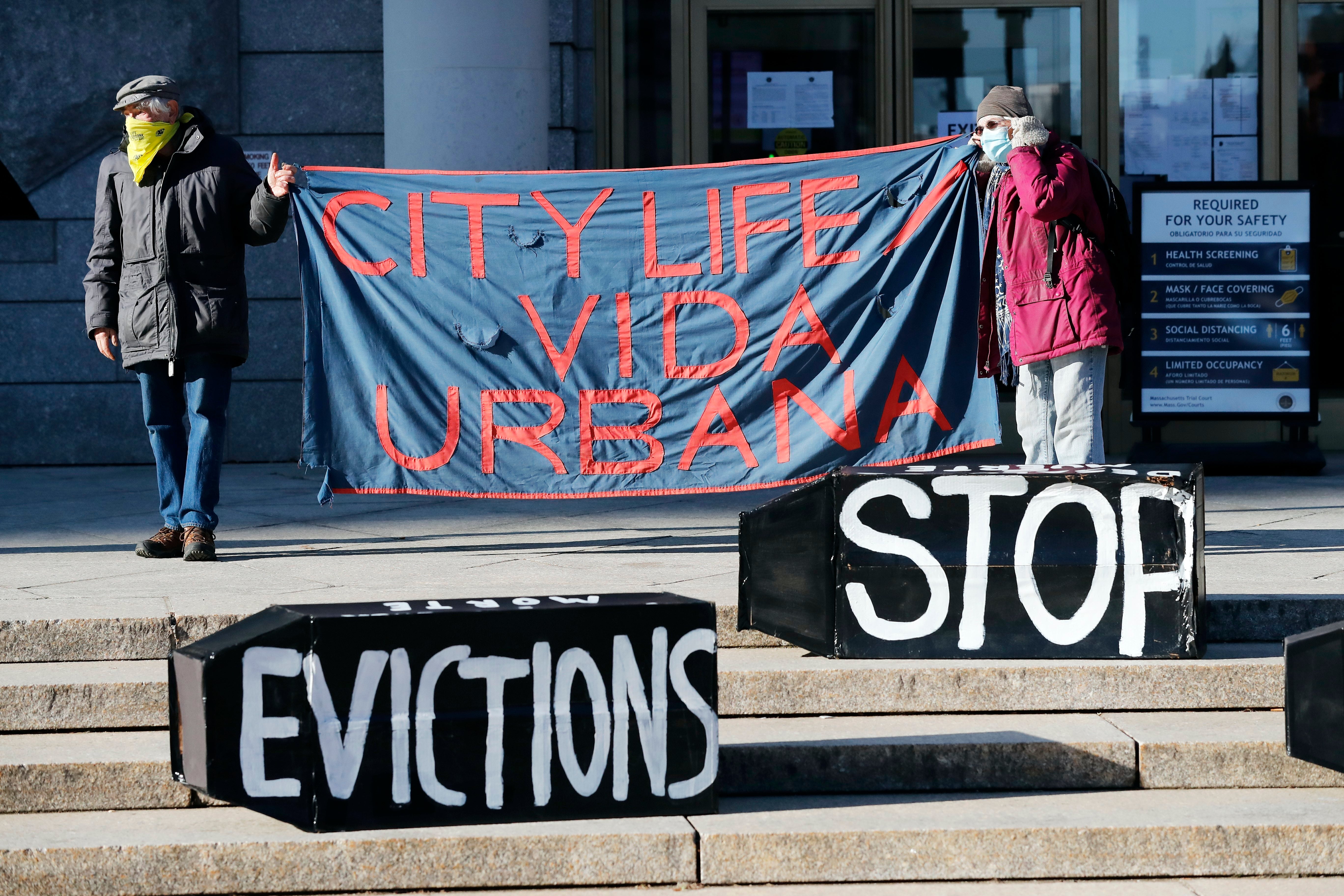Boston council passes proposal aimed at tackling rising rent
The Boston City Council has overwhelmingly approved a proposal from the mayor to cap rent prices as part of an effort to address rising costs and keep residents housed

Your support helps us to tell the story
From reproductive rights to climate change to Big Tech, The Independent is on the ground when the story is developing. Whether it's investigating the financials of Elon Musk's pro-Trump PAC or producing our latest documentary, 'The A Word', which shines a light on the American women fighting for reproductive rights, we know how important it is to parse out the facts from the messaging.
At such a critical moment in US history, we need reporters on the ground. Your donation allows us to keep sending journalists to speak to both sides of the story.
The Independent is trusted by Americans across the entire political spectrum. And unlike many other quality news outlets, we choose not to lock Americans out of our reporting and analysis with paywalls. We believe quality journalism should be available to everyone, paid for by those who can afford it.
Your support makes all the difference.The Boston City Council on Wednesday overwhelmingly approved a proposal from the mayor to cap rent prices as part of an effort to address rising housing costs and prevent homelessness.
Under Mayor Michelle Wu’s proposal, known as a home rule petition, the maximum allowable annual rent increase would be based on the change in the consumer price index, plus 6%, or a maximum increase of 10% — whichever is lower. The measure also provides other rental protections, including requiring that evictions be for cause such as not paying rent.
“This is a monumental act for the City of Boston,” said City Councilor Ricardo Arroyo, who supported the proposal. “I commend the mayor for moving forward with a rent stabilization plan to address what has been and is an ongoing, long standing issue of price gouging and rent gouging and displacement of residents of the City of Boston.”
Several council members said they were moved by earlier testimony from tenants who were facing rent increases upwards of 100% in some neighborhoods. Many also spoke of getting calls from residents who complained about significant rent increases they can't afford and felt the proposal would be critical in giving them some stability.
According to the real estate company Zillow, the Boston metro area is the fifth most expensive metro area in the country. Typical rents in Boston have gone up over the past year by 8.1%.
“Boston is increasingly out of reach for a majority of our seniors, immigrant populations, families and individuals,” City Councilor Gabriela Coletta said, adding that rents have increased 227% since 2011 in East Boston, which is part of her district. “Bad actors who take advantage of a bullish rental market can and do price gouge in a way that is displacing hard working individuals who just want to be able to live in this city and contribute to the local economy.”
The proposal would also exempt owner-occupied properties with six units or fewer — including the three-family homes that dot the city’s neighborhoods. Also exempt would be any new apartment buildings built during the first 15 years after being issued a certificate of occupancy.
Modeled after measures in California and Oregon, the push for rent control in Boston is part of a growing trend nationwide. Spurred by a shortage of affordable housing and rising rental prices, advocates said rent reform is the best short-term fix to the problem.
Opponents, led by the real-estate industry, say rent control will lead to higher prices for tenants in housing not covered by rent caps, harm mom-and-pop landlords relying on rental income for retirement and discourage the construction of badly needed affordable housing. They have spent heavily to stop ballot initiatives, even going to court to halt them.
The proposal must still be approved by the state legislature, since voters in Massachusetts approved a 1994 ballot question banning rent control statewide.